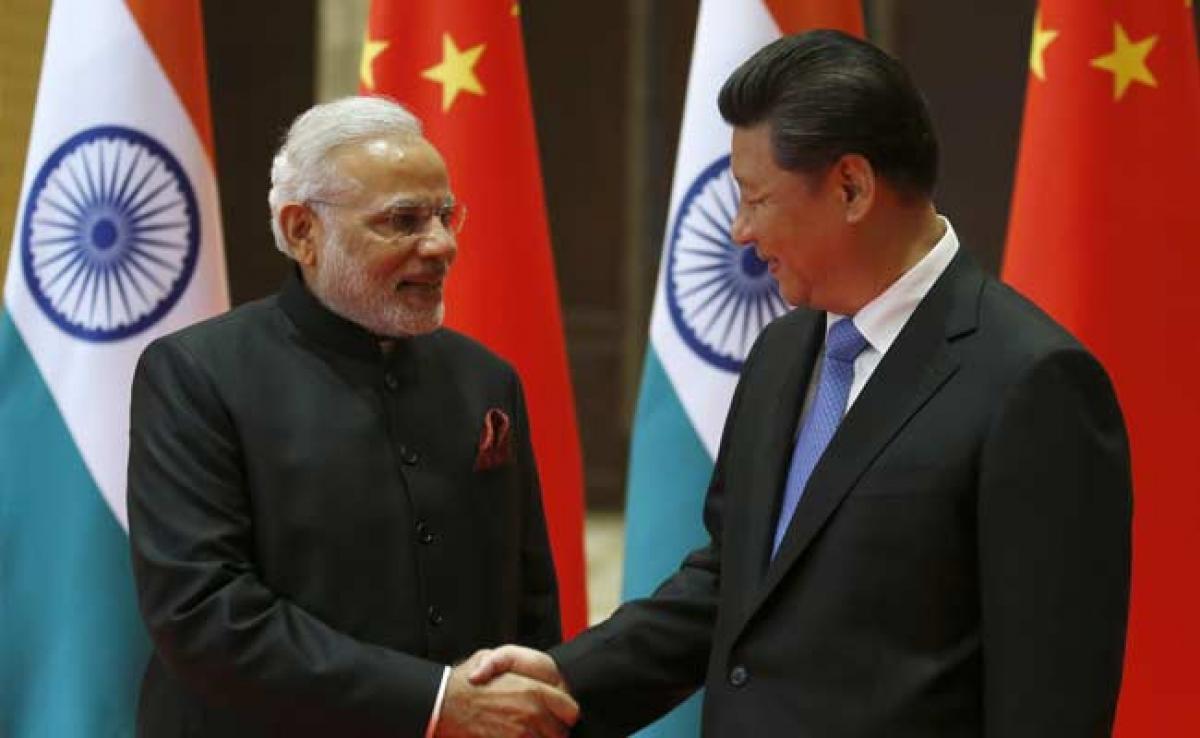Live
- New AC rake adds 13 more ‘cool’ train services on Mumbai suburban section
- Malaika Arora is living her best life on a moving train
- IPL: Is Venkatesh Iyer KKR’s Next Captain?
- Dalit youth beaten to death in MP's Shivpuri, four arrested
- UN welcomes Israel-Lebanon ceasefire agreement
- Yuvana’s Mesmerising Kuchipudi Debut
- Shiv Sena's Kayande slams LoP Gandhi over Savarkar comments
- India Open Competition in Shotgun begins in Jaipur, paving way for Nationals' qualification
- Black Friday 2024: History, Importance, and What to Expect
- Indian healthcare market projected to reach $638 bn by 2025: Report
Just In

India will face \"serious consequences\" if it has refused visa to three Chinese journalists as retaliation after Beijing opposed India\'s bid to join the elite Nuclear Suppliers Group or NSG last month, China\'s media has said .
India will face "serious consequences" if it has refused visa to three Chinese journalists as retaliation after Beijing opposed India's bid to join the elite Nuclear Suppliers Group or NSG last month, China's media has said .
"...speculation is swirling that India is taking revenge against China for the latter's opposition to India joining the Nuclear Suppliers Group (NSG)...If New Delhi is really taking revenge due to the NSG membership issue, there will be serious consequences," the editorial in the Global Times said on Sunday.
The Chinese journalists from the state-run Xinhua news agency have been denied permission to stay on in India. According to sources, Delhi-based Bureau Chief Wu Qiang and Mumbai-based reporters Tang Lu and Ma Qiang were being watched by security agencies for several months now for "activities beyond their official work".
Their visas had expired in January and since then they were being extended. They will have to return by July 31. All three had asked for an extension of their stay by a few months till their successors arrive.
Sources say China is free to send other journalists to India in their place and insist the decision is not linked to China's opposition to India joining the elite Nuclear Suppliers Group or NSG.
"On the visa issue this time, we should take action to display our reaction. We at least should make a few Indians feel Chinese visas are also not easy to get," the editorial said.
"No official reason was given for the rejection of the visa renewals. Some Indian media claimed that the three journalists are suspected of impersonating other people to access several restricted departments in Delhi and Mumbai with fake names. There were also reports attributing it to the journalists' meeting with exiled Tibetan activists."
Quoting its former Indian correspondent, Lu Pengfei, Global Times said there is "absolutely no need" for Chinese journalists in India to conduct interviews under fake names and it is completely normal for reporters to request interviews with the Dalai Lama's group.
"The act has sent negative messages and media communications between China and India will inevitably be negatively impacted," said the editorial titled 'India's expulsion of reporters is a petty act.'
It claimed that by opposing India's NSG membership, China was not being disrespectful but it was obeying the rule that all NSG members are required to be signatories to the Non-Proliferation Treaty (NPT).
"India has a suspicious mind. No matter whether Chinese reporters apply for a long-term or a temporary journalist visa, they will come across many troubles. Complaints about difficulties of acquiring an Indian visa have also been heard from other Chinese who deal with India. In contrast, it's much easier for Indians to get a Chinese visa," said the editorial.
It also pitched for maintaining friendly India-China ties.

© 2024 Hyderabad Media House Limited/The Hans India. All rights reserved. Powered by hocalwire.com







